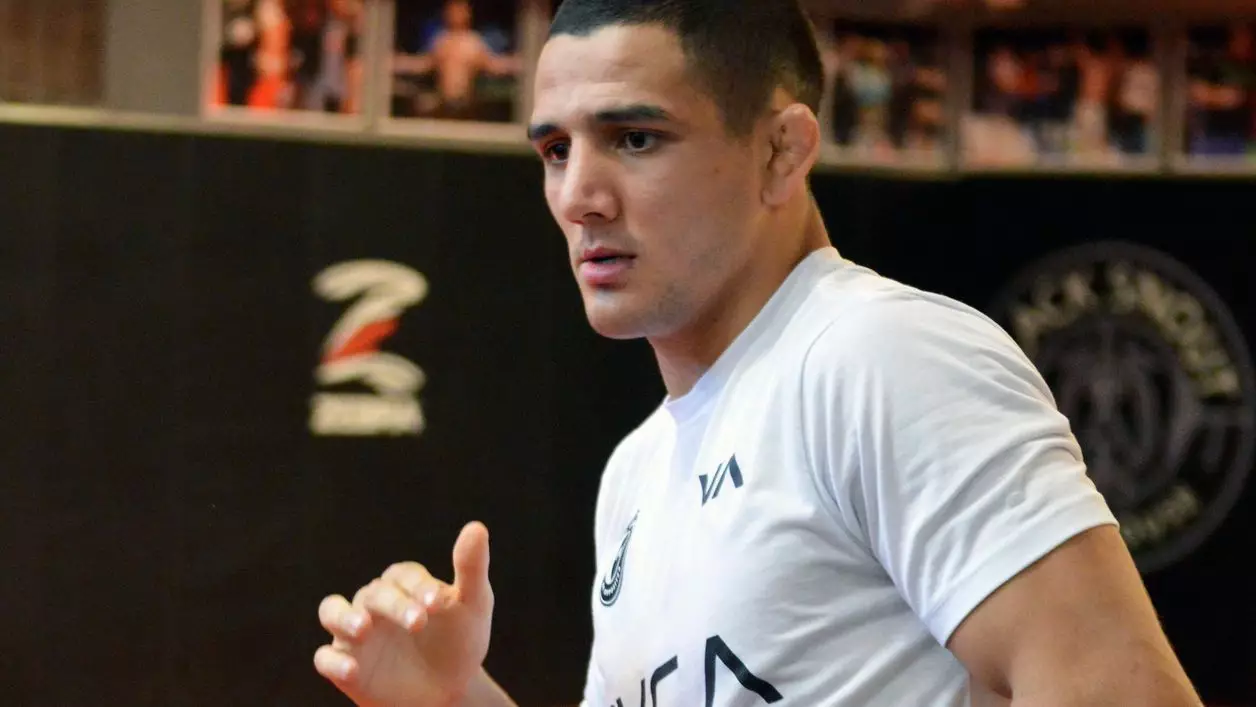Aaron Pico, a name synonymous with potential in the world of mixed martial arts (MMA), has recently made headlines with a bold declaration: he would rather sit on the sidelines for an entire year than don the PFL (Professional Fighters League) banner again. At just 28 years old and boasting an impressive record of 13 wins and 4 losses—with nine of those victories coming via knockout—Pico finds himself at a crossroads in his career. Currently a free agent, his sights are firmly set on the UFC (Ultimate Fighting Championship), but navigating the complexities of contractual obligations adds layers of difficulty to his ambitions.
Pico’s desire to transfer to the UFC is not without its hurdles. The PFL possesses contractual rights that allow them to match any offers Pico receives—a protection mechanism that is standard in the industry. In a candid statement to ESPN, he emphasized the depth of his conviction: “If they match it, then I’m with the PFL and I’ll sit out one year.” This declaration reflects not only his frustration with the PFL but also a willingness to sacrifice competitive participation for the chance to pursue what he believes to be a better opportunity in the UFC.
Pico’s career trajectory is intriguing. He signed a developmental contract with Bellator MMA back in 2014, predating his actual MMA debut by three years. During this period, he cultivated his skills through amateur wrestling and boxing. However, since the PFL’s acquisition of Bellator in late 2023, PMPico’s fight opportunities have dwindled. He’s had just a single fight since the merger, facing the added frustration of three canceled bouts—a scenario that has led him to lose faith in the PFL’s ability to provide him with the fight schedule he needs to progress.
Donn Davis, co-founder of PFL, has publicly expressed his affection for Pico, framing their hold on matching rights as a customary business practice. Nevertheless, Pico’s counterargument resonates with many fighters who feel trapped by contractual obligations. “I understand that, but it’s standard to make sure that your fighters are fighting three fights per year,” he stated. The irony of Pico’s situation is palpable; while the PFL claims to protect its investment in fighters, it risks alienating them through restrictive practices.
Moreover, Pico is not alone in his grievances. Other prominent fighters, such as former Bellator champions Gegard Mousasi and Patricio Pitbull Freire, have echoed similar sentiments, seeking freedom from the PFL’s grasp. Even the bantamweight champion Patchy Mix has stepped forward with a public request for his release, highlighting a broader trend of discontent among fighters under the PFL umbrella.
The Future Landscape of PFL and MMA
As the PFL gears up for a significant format shift in 2025, transitioning from a traditional regular season point system to a single-elimination tournament, it remains to be seen how these changes will impact fighters like Pico and their willingness to stay or exit. For Pico, the future is uncertain, but his uncompromising stance against the PFL sets a precedent for embracing personal agency in an industry often dictated by business interests.
Aaron Pico’s resolute stance against returning to the PFL captures the tension between athlete aspirations and corporate policies in MMA. His journey is not just about individual fights but represents a broader struggle for agency within the sport. As his story unfolds, it may very well illuminate a path for others facing similar dilemmas in the ever-evolving landscape of professional fighting.


Leave a Reply